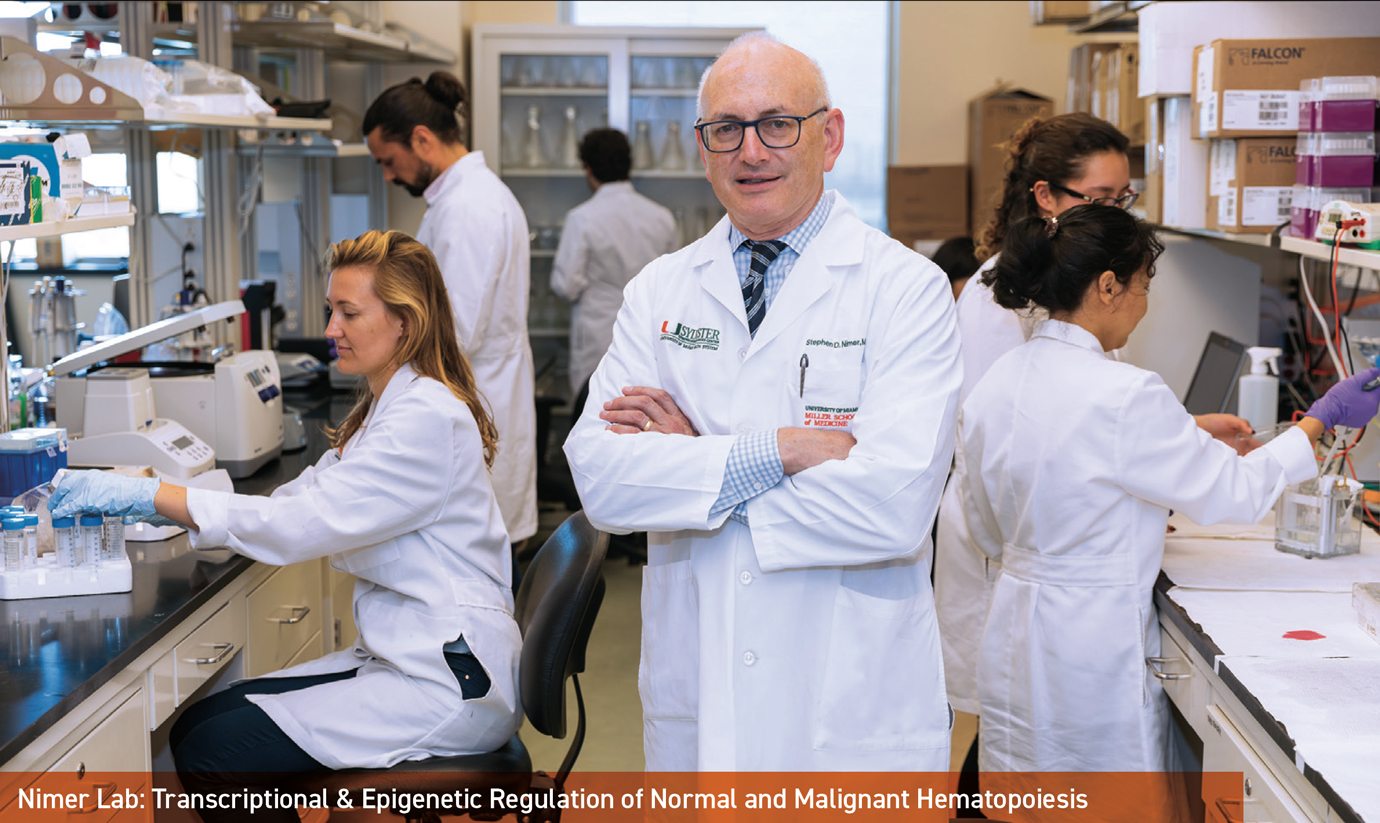- Message from the Director
- Chair, Board of Governors Message
- Board of Governors
- Leadership
- Sylvester Locations
- Sylvester by the Numbers
-
- Sylvester Investigator’s Hodgkin Lymphoma Protocol Could Change Care for Relapsed, Refractory Patients
- Sylvester Physician-Scientist Receives Doris Duke Charitable Foundation Grant
- Junior Researcher Lands Competitive Grants for Pancreatic Cancer Focus
- Sylvester Researcher Chosen for Bristol Myers Squibb Foundation’s Career Development Program
- Sylvester Part of Groundbreaking NIH Trial Proving Anal Cancer Can Be Prevented
- The Childhood Cancer Project Focuses On Cures
-
- Health Economist Heads Commission to Examine Global Cancer Care Inequities
- Dr. Chad Ritch Appointed Member of American College of Surgeons Commission on Cancer
- Sylvester Launches New Program To Prevent Breast Cancer In Those At High Risk
- VA Honors Investigator For Gastric Cancer Research
- Keeping Cancer In Its Place: Key Protein Identified
- Phase 1 Program
-
- WHO Taps Sylvester in Global Fight Against Cervical Cancer
- Groundbreaking Research
- Community Outreach
- Orthopaedic Surgeon, Researcher Dr. Francis Hornicek Returns To Miami
- Sarcoma Specialist’s Return Elevates Sylvester Orthopaedic Oncology
- Dr. Marijo Bilusic Joins Sylvester as Genitourinary Site Leader
- Cancer Control Leader Joins Sylvester
- Educational Pathways Fuel Robust Cancer Research Pipeline
- Target: Multiple Myeloma Cure
- Educator
-
- Committed to Survivors’ Quality of Life
- Multidisciplinary Clinic
- Tackling Hispanic Cancer Disparities
- Training The Next Generation of Researchers in Disparities, Equity
- Researcher Drives Efforts To Educate Youth About E-Cigs, Hookahs
- Sylvester Studies Cancer Patient Advocacy Group’s Impact on Outcomes
- Clinic Addresses Sexual Dysfunction In Cancer Survivors
-
In a new study, Sylvester researchers used mouse models to determine that promoting the activity of the p300 protein helps prevent myelodysplastic syndrome (MDS) from evolving into acute myeloid leukemia (AML). These findings could ultimately translate into new treatments that stall MDS progression. The study was published in the journal JCI Insight.

“Many MDS patients will progress to AML, which is more deadly, but we do not fully understand the mechanisms involved,” said Sylvester Director Stephen D. Nimer, M.D., senior author on the paper. “Now that we have identified an important role for p300 in preventing MDS progression, we can potentially manipulate its activity therapeutically.”
In the study, the researchers found that deleting or inhibiting p300 impairs the epigenetic machinery that controls gene expression triggering the development of AML. These findings indicated that losing p300 activity played a critical role in disease progression, increasing cell proliferation and giving the cells greater capacity to become increasingly malignant.